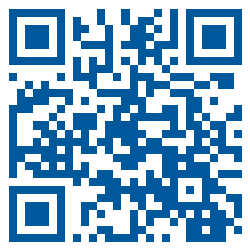
 Paediatric Speech and Language Therapist in Huyton inHuyton
Paediatric Speech and Language Therapist in Huyton inHuyton PUBLISHED FRI 8 NOV 2024 Jump to job information section
Mersey Care NHS Foundation Trust rDYcspZ6
Job description
We are recruiting for a band 5 Speech and Language Therapist to work within Children's Speech and Language Therapy in Knowsley Community Paediatric Service.
The successful candidate will work with children 0-18 with Speech, language and communication difficulties working to assess, treat and support clients and their carers to support their communication skills. Previous experience working with children and young people aged 0-18 year with Speech, Language and communication difficulties would be hugely beneficial.
The post holder will work with a team of speech and language therapists and assistants to provide a high-quality speech and language therapy service to people with a variety of speech, language and communication difficulties in a range of education settings, clinics and clients' own homes.
They will work collaboratively with other agencies and carers to enable them to understand communication impairments and to provide appropriate support and intervention to the person and those involved in their care.
They will be supported to complete the requirements of the RCSLT competencies.
Please refer to the attached Job Description and Person Specification for a full description of this role.
Clinically, the post holder will assess children with Speech, language and communication difficulties, supporting differential diagnosis where appropriate. They will provide relevant therapeutic intervention and support and provide Speech and Language Therapy care plans and reports as required.
The post holder will receive regular clinical supervision, group supervision and line management support from their more experienced Speech and Language Therapy colleagues.
The post holder will be responsible for their own caseload management with support from their supervisor and line manager, who would also be experienced Speech and Language Therapists.
The post holder would be expected to maintain registration and membership of RCSLT and HCPC, taking an active role in their own professional development and individual performance review (appraisal) process.
The post holder would be expected to take part in training delivered by the team.
About us
Flexible working requests will be considered for all roles.
We have an exciting opportunity for a Band 5 Speech and Language Therapist to join our friendly and supportive Speech and Language Therapy Team in Knowsley, where we are centrally based at Manor Farm Primary Care Resource Centre.
We are looking for a creative, innovative Speech and Language Therapist with excellent interpersonal skills and the enthusiasm to communicate the importance of speech, language and communication within our local communities.
The successful candidate will work with a school-age caseload across a combination of locations; mainstream schools, nursery settings and community clinics They will assess, diagnose and treat a wide range of speech, language and communication needs in children.
Evidence-based practice to support parents and the wider childrens workforce to develop childrens speech, language and communication skills in an inclusive environment is essential to this role. This will include providing formal training and informal coaching sessions at clinic, the childs home or educational setting.
An awareness of a person-centred approach to assessment, intervention and support is assumed. An active role in the development and delivery of training is also required. The successful candidate will be expected to supervise Speech and Language Therapy Assistants, carrying out advisory visits and specialist visits as necessary. You can expect to be supported and mentored by the Specialist, Highly Specialist Speech and Language Therapists and the Team Manager.
If you're interested in this role but you have questions or you're not yet ready to apply, then please book a quick call with us and we'd be happy to answer any questions you have and tell you more about the role.
Requirements
See the job description for full role requirements.
Benefits
Benefits are provided by the employer and will be confirmed during your application.
A quick tap lets us tune future job matches for you

Scan with your phone to return to this page later.